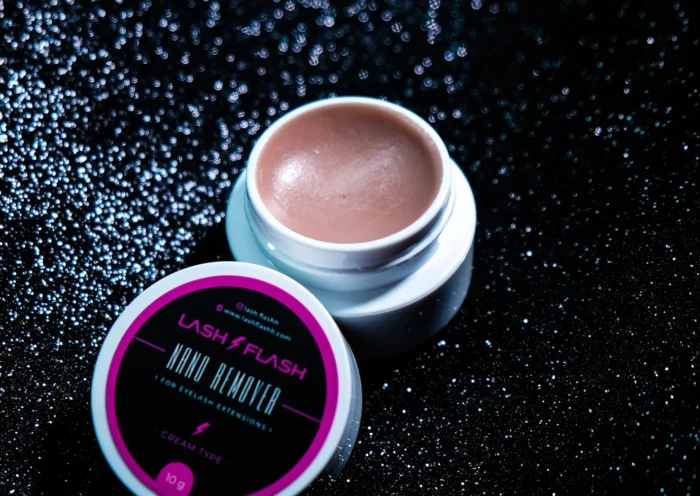Speed up lash application with Lash Flash tools In the competitive world of lash extensions, efficiency is key to success. Lash artists strive to deliver…
Can the T-Shirt Be Perfected?
The first time Erik Allen Ford, a founder of the clothing brand Buck Mason, tried on one of its T-shirts, it fit so badly that he thought the shirt was on backward.
“It was humbling,” Mr. Ford, 40, said of trying on that early T-shirt, which was made in Los Angeles with cotton grown in the United States. “It was the beginning of 50 iterations,” he added. “I slept in the sample room for a week.”
It was in 2013, not long after Mr. Ford and Sasha Koehn, another founder, had started the label in Los Angeles with a lofty goal: to make a superior T-shirt, a garment that emerged in the 19th century and that countless brands have tried to refine since.
The Buck Mason founders had little experience in apparel design, aside from some pattern-making classes Mr. Ford had taken. He had previously worked in sales and management for a couple of small clothing brands. Mr. Koehn, 41, had worked in media and, before that, as a landscape architect.
Now Buck Mason sells almost a dozen different short-sleeve T-shirts, which start at $45. Over the past decade, the brand has also started to sell other basics like jeans, sweatshirts and button-up shirts on its website and at the 24 stores it has opened in the U.S. But T-shirts represent a sizable chunk of its business, accounting for about 30 percent of all sales, Mr. Ford said.
Mr. Koehn called T-shirts “the gateway into the brand.” They have been recommended by Vogue, New York magazine and Wirecutter, the product recommendation service from The New York Times.
Of the roughly 500,000 T-shirts produced annually by Buck Mason, about 300,000 are made at domestic factories, with fabrics that are also made in the United States, said Jay Shaw, the brand’s head of supply chain.
Buck Mason touts its domestic manufacturing to market products on its website, labeling some as made in the United States and others as made with materials fabricated or grown in the country. According to a survey released in June by the polling firm Morning Consult, over the past year, about two thirds of participants sought to buy products that were made in America.
Usama Jawed, who lives in Manhattan and works in cybersecurity, said he owned 15 Buck Mason T-shirts and he appreciated the brand’s efforts to manufacture products domestically. Mr. Jawed, 35, added that some of the T-shirts he had bought were made in America, and others were made overseas. Those made domestically, he said, have held up better than the others.
Old Factory, New Chapter
All the domestic factories used by Buck Mason had been contracted by the company until December, when it bought a sewing factory and an associated cloth mill in Pennsylvania.
Both sites have since become involved in producing what Mr. Koehn identified as Buck Mason’s most popular men’s T-shirt: a $45 crew-neck style made with a specialty cotton known as Pima (or Supima), with curved seams meant to follow the natural slope of shoulders and angular sleeves meant to flatter biceps.
The founders had been looking into building a new factory in Texas, Mr. Ford said, when he got a call from a friend about the factory in Mohnton, Pa., and its associated mill in neighboring Shillington. Both sites had been in and out of operation since they were opened in 1878 and in 1906.
Days after speaking with his friend, Mr. Ford said, he went to visit Mohnton. (He lives in Sewickley, Pa., a four-hour drive away; Mr. Koehn lives in Los Angeles.)
The factory and the mill had previously been owned by Stitch Fix, a company that offers online personal styling services. It bought the facilities in 2017 from Gary Pleam, 79, whose ancestors had opened them, and whose family had continuously operated them until Mr. Pleam sold them to Stitch Fix.
About five dozen people lost jobs when Stitch Fix ceased operations at the factory and mill in November, Mr. Ford said. Some of them, he added, had been working at the sites for decades.
“All those skills would have been lost,” he said.
By March, the facilities had reopened as Buck Mason Knitting Mills, and several of the employees who had worked at them for Stitch Fix had been rehired.
The cloth mill in Shillington has started to produce fabrics for Buck Mason’s T-shirts and other tops using cotton grown in California, Georgia and Texas. Albert Bareika, who was hired by Buck Mason as the mill’s knitting lead in January, said there were plans to release a limited-edition T-shirt made with fabric produced at the facility on a 1940s-era Singer Supreme machine. Its Singer Supreme machine is one of a few still in operation, added Mr. Bareika, 66, who lives in nearby Leesport, Pa., and had previously worked for Stitch Fix at the mill.
At the Mohnton factory, some employees are responsible for cutting and sewing T-shirts, while others iron them by hand or package them for shipping. About 10,000 T-shirts are made there a month, Mr. Ford said. “By fall, we aim to double the capacity,” he added. “The goal is to quadruple it.”
The factory in Mohnton, a small borough in Berks County, Pa., produced hats and military uniforms before shifting to T-shirts, said Mr. Pleam, who lives in the borough. During the facilities’ heyday, in the late 1970s, the factory and mill employed about 100 workers, and the factory made about 22,000 T-shirts a week using fabrics from the mill, he said.
Mr. Bareika, who has worked at mills in the region for decades, said that in the years that followed, such facilities’ futures became less certain as some companies started to seek cheaper manufacturing operations overseas or in Mexico.
“The textile trade went elsewhere,” he said, adding that many local jobs went with it.
Buck Mason’s takeover of the factory and mill has brought only so many back — 17 people are now employed at the factory, and three at the mill. “It’s not a lot of jobs,” said Eric Burgis, the mayor of Mohnton, who was elected in 2021.
In an interview at Mohnton’s borough hall, about a 15-minute walk from the factory, Mr. Burgis rattled off the names of other businesses in the area. “We have five Walmarts within a 20-minute drive, two Targets, and two Lowe’s” stores, he said.
Elizabeth Cruz, 33, was working at an Amazon warehouse near Mohnton before she was hired by Buck Mason as a production associate at the factory. She said both companies offered comparable pay — $18.35 an hour at Amazon, $19 an hour at Buck Mason. But the factory job offered a better schedule, she added, and a shorter commute from her home in Shillington.
Close to the Needles
Mr. Ford said “the dream” was to employ 100 people at the facilities. Since Buck Mason took them over, he has visited every few weeks. Mr. Koehn has made fewer trips. On a recent visit to the factory by both, in late July, Mr. Ford recited the sample-size measurements of Buck Mason’s most popular men’s T-shirt from memory, as if he were giving his phone number.
“The sleeves are seven inches, the chest is 40, the sweep is 40,” he said. “The neckline binding — the double-stitched hem around the collar — is seven-eighths of an inch deep.”
While hovering over a gray T-shirt that was laid out on a desk inside the factory’s grading and marking studio — a room where fabrics are examined and patterns are adjusted and sized to ensure consistency — Mr. Ford explained how workers had started to use protractors to measure the circumference of T-shirts’ necks.
Mr. Koehn said it would be more affordable to produce T-shirts in China, and even cheaper to make them in Vietnam. The ability to market products as made in America isn’t the only benefit to producing items domestically, he added. Another is quality control. “The closer you are to the needle, the better something is going to be because of how easily you can get involved,” as he put it.
But Buck Mason’s founders still prioritize bottom lines. Certain items, like the brand’s Japanese denim jeans ($148) and its cotton-twill button-up shirts ($128), are mostly made in Vietnam, India and Indonesia, Mr. Koehn said, because producing them domestically would not be as profitable.
The founders, who are planning to open seven new stores by the end of the year, including a new flagship store on Fifth Avenue in Manhattan’s Flatiron district, said they saw their investment in the Pennsylvania facilities as an important step in the evolution of Buck Mason. A step that they hope will help their brand become as well known for domestically made T-shirts as Levi’s has become for jeans, and Carhartt has for overalls.
“There is nothing more essential to the American wardrobe than a white tee,” Mr. Ford said.
Source: Read Full Article


